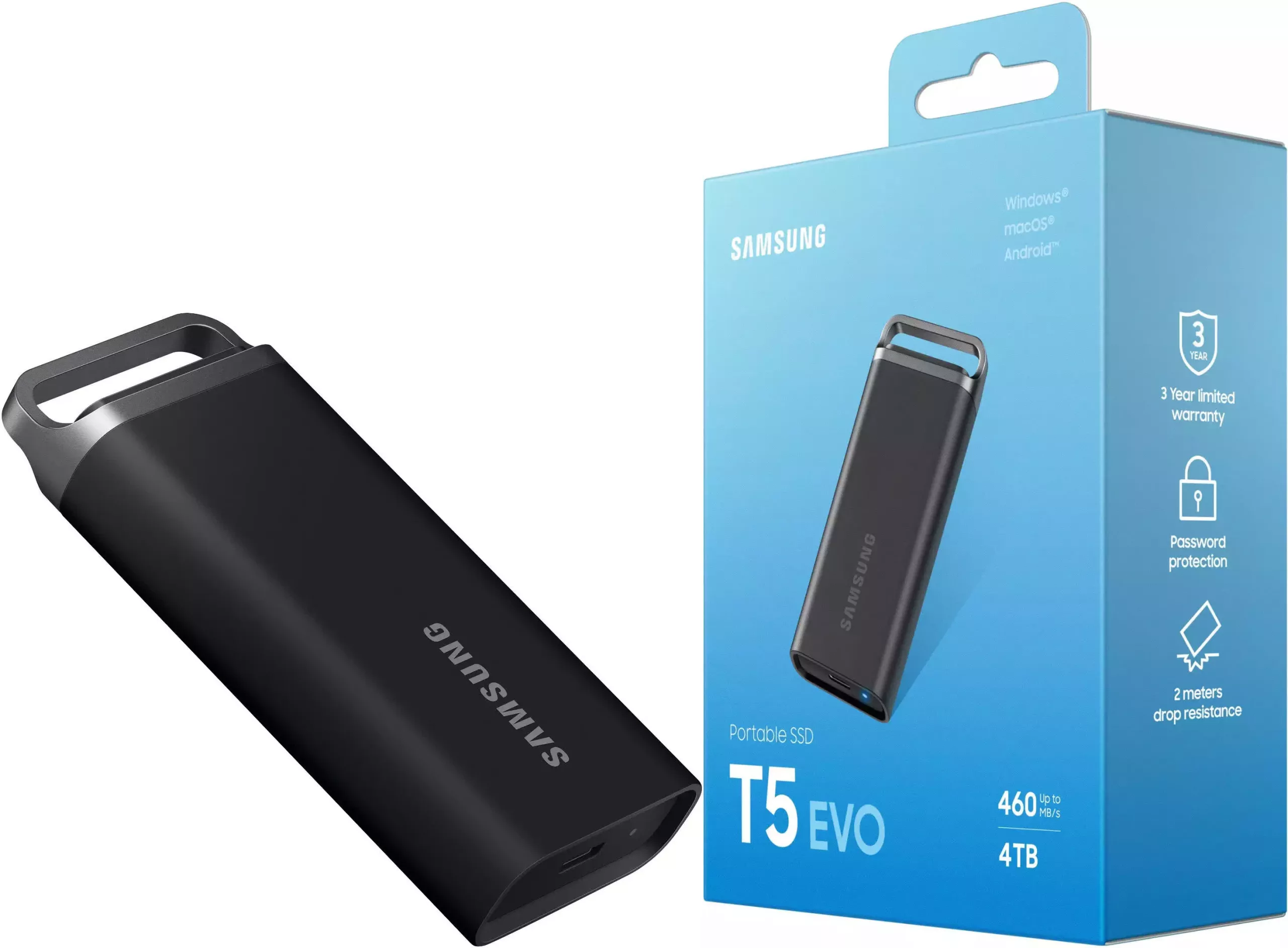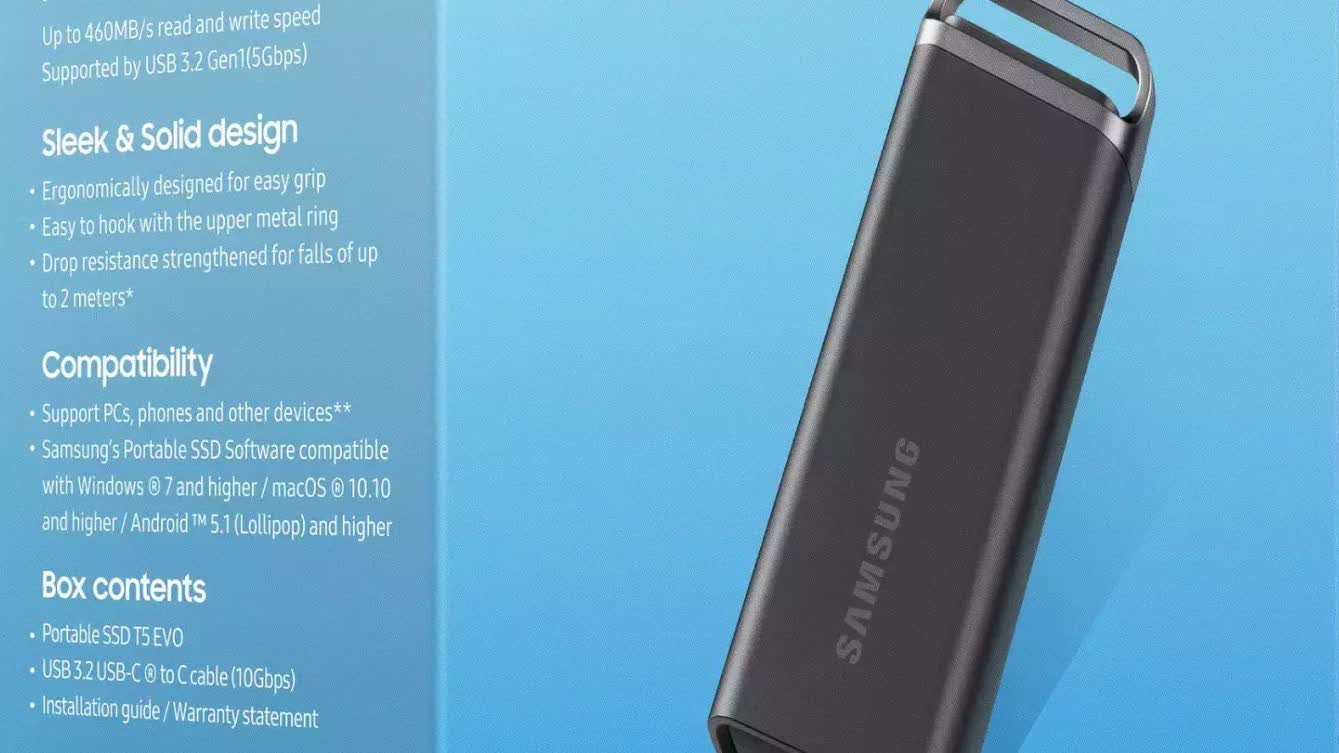In context: Samsung sells TechSpot's favorite portable SSD (the T7), which recently received a successor that while expensive, offers an impressive speed boost. A new upcoming option looks to exchange speed for capacity. Uniquely roomy for its size, it could prove worthwhile in specific situations.

German computer outlet WinFuture has obtained images of the packaging for an unannounced Samsung portable solid-state drive, which boasts a maximum storage option of 8TB. Although a release date is uncertain, the packaging design, complete with a 2023 copyright marker, suggests a likely launch before year-end.
Named the T5 Evo, this pocket-sized SSD appears to be similar to the company's well-regarded T7 Shield or its recently released Samsung T9. However, while those and other ultra-portable SSDs max out at 4TB, the T5 Evo offers an 8TB variant.

The listed prices for the new product are steep – $189.99 for 2TB and $349.99 for 4TB. These do not seem competitive when considering that the T7 Shield and T9 offer 4TB for approximately $230 and $299, respectively. Moreover, the T5 Evo is limited by a USB 3.2 Gen 1 interface, capping its maximum read/write speeds at 460MB/s – significantly slower than the T7 Shield's 1GB/s and the T9's 2GB/s.
Additionally, the unannounced SSD's durability is somewhat lacking, withstanding falls from only up to two meters, whereas the T7 Shield can handle three.
Nevertheless, for those in need of an 8TB SSD that fits in a jean pocket, the T5 Evo may be the only option. Weighing just 102 grams and with dimensions of 95 x 40 x 17 millimeters, it aligns with the size of Samsung's other portable SSDs. Considering this, the highest storage tier's price of $655.99, which is roughly 8 cents per gigabyte, doesn't seem that terrible.
A subtle yet potentially significant feature that the T7 Shield and T9 lack is the T5 Evo's metal ring, which facilitates attachment to hooks or strings – similar to the rings found on Western Digital's popular SanDisk portable SSDs. However, WD's recent issues with their Extreme Pro model, leading to a class-action lawsuit due to high failure rates, may drive consumers towards Samsung's offerings.
As expected, the T5 Evo is compatible with operating systems including and beyond Windows 7, macOS 10.10, and Android 5.1. Like Samsung's other drives, it is also likely to support game consoles, meaning the forthcoming 8TB variant should accommodate a substantial collection of 100GB games.
https://www.techspot.com/news/100754-samsung-upcoming-8tb-portable-ssd-kind-slow-expensive.html